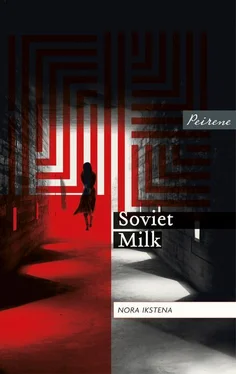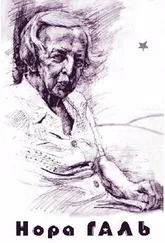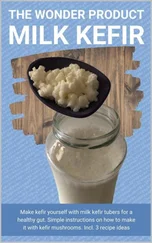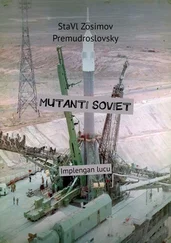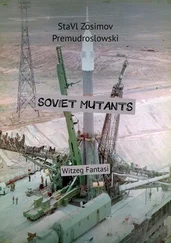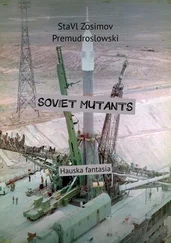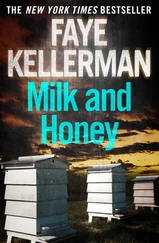Out in the streets, the summer of 1989 was on fire. The people out there were transformed: elated and happy, armed with flowers, folk songs and little red-white-red flags. Life flooded the gardens, courtyards, roads, fields and cities. I wished that like the ninth wave it would crash through my mother’s small, smoke-filled room, wash away all of history’s injustices and miserable coincidences, including being born exactly then and there – crash in and let life in with it.
But my mother didn’t leave her room. She didn’t leave even when Jesse and I, crying with happiness and helplessness, told her that she had to join hands with people throughout our three Baltic countries who wished to be free. We would form a living human chain in which every person had their place. Every one of us would become part of that causeway of human beings, extending our hands to each other, and no one would be able to destroy us again.
But my mother wouldn’t come out. Jesse and I stood hand in hand with many others and cried not for joy at the freedom which was close by but because of our heartache for my mother, who refused it.
I left earlier than planned for the city. I knew that I was leaving the entire burden on Jesse’s shoulders. With every passing train station I distanced myself from my mother’s stifling room, where she gazed at the August garden through the half-open window or maybe simply stared at a point in the distance and saw nothing.
In the lecture halls September passed as if we were in a trance. No one talked about literature or historical Balt grammar. Everyone – lecturers and students – behaved as if set free from imprisonment. The only thing that mattered was what was happening outside. The mighty Soviet monolith was tottering, collapsing, and no one could tell if the consequences would be the devastation of an earthquake or as it was in the Bible when God created a new, beautiful world out of nothing. Would it be a paradise or hell?
One sunny October afternoon, we lived and breathed nothing but the People’s Front Congress. The people demanded the return of their mother – the land of their birth. My grandmother and step-grandfather didn’t hide their tears of joy.
In the evening Jesse telephoned. She couldn’t talk. Tears stifled every word. My mother had died. I had to hurry back immediately.
I arrived on the last train. Jesse met me at the station. She had shrunk into a tiny creature, her face ridged with pain and tears. We walked along the leaf-strewn road. The beginning of October was oddly warm.
‘I don’t know. I don’t know what she did to herself,’ Jesse sobbed. ‘I came back from the ambulatory clinic and she was lying there – dead. A doctor came and certified her death.’ Jesse cried like a child.
I walked beside her, not yet understanding. The news of my mother’s death seemed unreal, invented. Even though weeping Jesse testified to its truth by every sound she made.
With our neighbours’ help, Jesse had carried my mother into the garage. She lay on the long table in her old housecoat and woollen socks, her hair in a ponytail. Very likely she hadn’t brushed it.
I touched my mother’s hand. It was cold and covered with gashes from the wire brushes. I took her hand and tried to warm it in mine, but it made no difference.
‘Heat up some water, Jesse,’ I said. ‘Let’s wash her.’
In the mixed dimness of electric lamps and candlelight I unbuttoned my mother’s housecoat. Jesse helped me to undress her. It seemed to us that my mother must feel cold, so we covered her to her waist. Jesse brought warm water, alcohol and towels. I wet the towels and first carefully cleaned my mother’s face. In the corners of her eyes she still had remnants of sleep, and a crumb of bread in a corner of her mouth. Her lips were dry and chapped. Then I carefully washed her breasts – which I had only seen once during a night swim, when we had slid into the river naked. They were cold, white, with a scattering of tiny freckles. I touched them. They rose from my dream warm and full of mother’s milk, and the milk flowed life-giving and infinite. I rested my head on my mother’s breasts, and my warm and salty tears fell upon my mother’s cold flesh.
The next morning I returned to Riga. There was much to do before the funeral. My grandmother and step-grandfather divided the tasks. We worked together, trying not to show our emotions. Jesse remained with my mother and cried for all of us.
The unusually warm October air flowed through the open window into the kitchen, where we were eating our supper in silence. I gazed at my grandmother’s pale cheeks and at my step-grandfather, who had bent over his plate so we wouldn’t see the tears falling into his food.
Tomorrow we would have to bid farewell to my mother. When the table had been cleared, my grandmother asked me to stay a little in the kitchen. After a moment she returned with a small bundle wrapped in white cloth, mottled with rust stains. She untied it.
On the kitchen table under the wan lamplight, my grandmother unwrapped the tiny parcel. It was a baby’s first shirt and bundled within it was a horseshoe with a couple of nails. So that the infant would be lucky in life. It belonged to my mother, once the tiniest of tiny infants. And the horseshoe was a lucky one that my grandmother had found for her on the war-ravaged road, so that her life might be peaceful.
It was a strange funeral. Without anyone to lead my mother into the next world in accordance with the ancient Latvian custom, the funeral took place in silence. The October sun and its golden leaves strewed the paths. There were four of us at the graveside: my grandmother, my step-grandfather, Jesse and I. An endless stream of women unknown to us flowed by, leaning down and placing flowers on the grave mound. A blanket of deep red, then white, then deep red Michaelmas daisies.
Jesse and I lit candles. May my mother rest in peace. Several women embraced me, without a word. But a young woman of about my age came up to me and spoke in Russian.
‘My mother, Serafima, called your mother my father.’ She smiled. ‘Without your mother, I would not have been born. That was in Leningrad. Now we live here. Serafima died, but she always said that I should find your mother. Sadly, I have only managed now.’
‘Your mother was my father’ – it rang in my ears.
In the evening I lingered in my mother’s room. Jesse had brought in autumn flowers. Everything had been cleaned and put in order, but on the table stood my mother’s ashtray with the last cigarette butt and a half-drunk mug of coffee. I looked up at the ceiling, where Jesse had done her best. She had scrubbed at the dark-yellow smoke stains and managed to clean away almost all but a tiny circle in the centre.
I lay down on my mother’s bed. My mother’s fragrance was there – and not there. Maybe Jesse had changed the bedding. Under the pillow I felt something hard, wrapped in paper. As I unwrapped it, into my lap fell a tiny clay baby. Suddenly I remembered it word for word, as if in black and white, a simple story of which even the tiniest fact could not be verified because no proof of it existed except in my memory. I had wanted to recreate a foetus out of clay.
On the paper my mother had scrawled:
Thou, who hast given birth to the Healer, heal my soul of yearning and sinful passions. Tossed in life’s storms, lead me to the port of penitence. Save me from eternal fire, the evil worm and hell.
About a month after my mother’s funeral, Jesse came to our flat in the city. She had continued to live in my mother’s house, tending the garden and at first walking to the graveyard almost every day.
After our bathtub ritual, about which Jesse used only one word – heavenly – we prepared for supper. My grandmother had made a special effort: a roast with vegetables, a cream of wheat mousse for dessert. We were setting the table when, from the other room, where the television was turned on, my step-grandfather shouted.
Читать дальше
